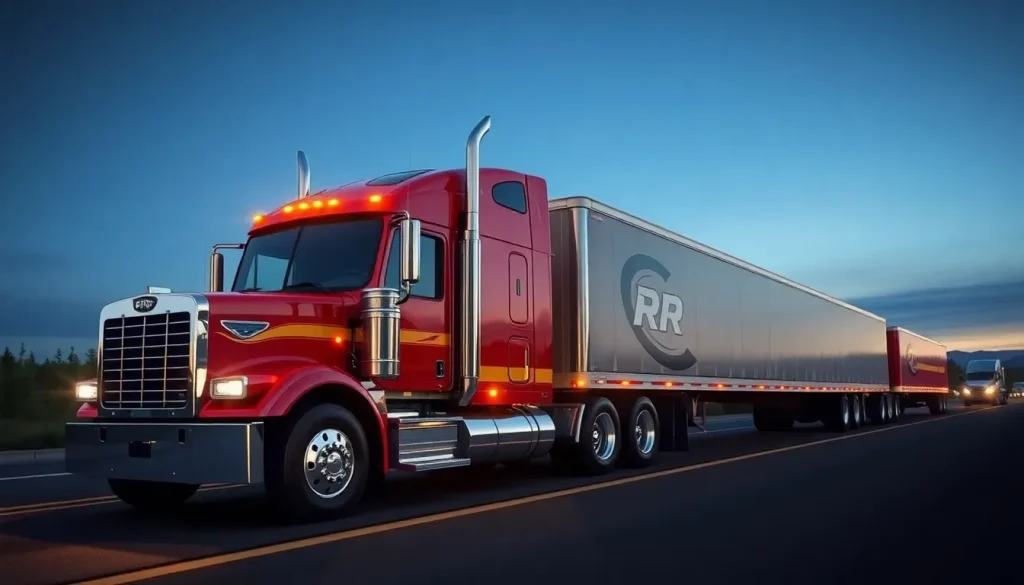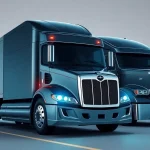Vancouver RR Plett Trucking transitions to battery electric vehicles

As the world shifts towards more sustainable practices, the trucking industry is beginning to embrace electric vehicle technology. Companies like RR Plett Trucking in Vancouver are leading the charge, demonstrating how transitioning to battery-electric vehicles (BEVs) can be both feasible and beneficial. Their journey highlights the complexities and advantages of making this significant shift.
With a commitment to innovation and sustainability, RR Plett Trucking is navigating the evolving landscape of electric transportation. Their experiences offer valuable insights for other fleets considering similar changes, showcasing the potential for operational efficiency, cost savings, and environmental benefits.
Understanding operational fit for electric trucks
RR Plett Trucking operates under the banner of West Coast Freight, a company that has provided local drayage services since 1978. Their operations extend across the Greater Vancouver area and include long-distance services from key ports such as Deltaport and Centerm. This established presence offers a solid foundation for integrating electric trucks into their fleet.
Initially, the company anticipated challenges regarding the range of the VNR Electrics, which cover approximately 300 kilometers (about 188 miles) per day during a typical 10-hour shift. However, strategic route adjustments and dedicated runs have effectively addressed these concerns. By optimizing their operations, Plett and his team have successfully integrated BEVs into their daily activities.
- Dedicated routes help ensure that electric trucks remain within a comfortable operational range.
- Winter months require additional planning due to decreased range in colder temperatures, which can drop by 10-15%.
- Dispatch teams have adapted to monitor the BEV fleet more closely, ensuring efficient routing and scheduling.
Driver training has also been a key component of this transition. Initially, there was a learning curve related to utilizing regenerative braking systems effectively. However, drivers have since adapted, reporting increased job satisfaction due to the quieter cabins and lack of diesel odors. This cultural shift within the company illustrates how operational fit is not just about logistics but also about employees' experiences.
Investing in charging infrastructure
One of the critical considerations in transitioning to electric vehicles is the establishment of adequate charging infrastructure. RR Plett Trucking has taken proactive steps by installing two Terra 124 120-kW DC fast chargers from ABB at their facility. Each unit represents a significant investment, costing around $100,000 before grants. The company was fortunate to leverage existing high-voltage power lines at their Port Kells terminal, which facilitated the installation process.
The benefits of this foresight are clear:
- Existing heavy power infrastructure reduced initial setup costs and time.
- Working alongside local electrical contractors and city officials streamlined the permitting process.
- Future expansions are planned to accommodate the growing BEV fleet, with potential additional charging capacity by 2026.
Plett has expressed optimism about collaboration with BC Hydro, which is eager to support electrification initiatives. Their partnership fosters an environment conducive to growth and innovation, paving the way for additional infrastructure projects that align with the company’s goals.
The financial implications of transitioning to electric vehicles
Transitioning to electric trucks comes with both challenges and opportunities. After 16 months of operation with the initial two VNR Electrics and eight months with the remaining four, Plett is beginning to see the financial viability of his investment. While there are uncertainties regarding residual values and long-term reliability, the indications thus far are promising.
Key financial aspects include:
- Initial costs for electric trucks are approximately $80,000 higher than their diesel counterparts.
- Fuel and maintenance savings are prominent, contributing to a break-even point estimated around three years.
- Government grants have played a vital role in mitigating the cost differences, making the transition more accessible.
- Both federal and provincial support programs are crucial in enabling fleets to make shifts toward electrification.
Plett emphasizes the importance of considering the total investment when evaluating the financial implications of BEVs. This includes charging infrastructure, operational costs, and the broader context of fleet management. The overall outlook remains positive, with the potential for further savings as their fleet expands.
Exploring intangible benefits
Beyond the tangible financial advantages, RR Plett Trucking is also experiencing several intangible benefits as they embrace electric vehicles. Customers have expressed pride in their association with a forward-thinking company committed to sustainability. This positive perception can significantly enhance brand reputation and loyalty.
Moreover, the company is making strides in addressing Scope 3 emissions, which encompass indirect greenhouse gas emissions throughout the supply chain. Some key points include:
- Customers appreciate the reduction in emissions associated with their freight operations.
- Being able to advertise zero-emission deliveries aligns with corporate social responsibility and environmental, social, and governance (ESG) goals.
- The Port of Vancouver's support for zero-emission initiatives reinforces the value of transitioning to electric trucks.
As RR Plett Trucking plans to expand its fleet with an additional 24 BEVs over the next three years, they recognize the need to prioritize charging infrastructure development. Their experiences serve as a roadmap for other fleets considering similar transitions.
Looking to the future of electric trucking
The journey for RR Plett Trucking reflects both the challenges and triumphs associated with incorporating electric vehicles into a traditional trucking operation. As they continue to refine their processes and expand their fleet, the company remains committed to sustainability and innovation. However, the shift is not without its hurdles; for instance, the anticipated delays and price increases for Tesla Semis have prompted the company to explore alternative electric truck manufacturers.
The production timeline for the Tesla Semi has faced multiple delays, initially set for 2019 but now projected for full-scale production in 2026. As the market evolves, RR Plett Trucking is prepared to adapt, ensuring that they remain at the forefront of the electric vehicle revolution in the trucking sector.
In this dynamic landscape, companies like RR Plett Trucking are trailblazers, demonstrating that the road to electrification is not just possible but also profitable and sustainable.




Leave a Reply